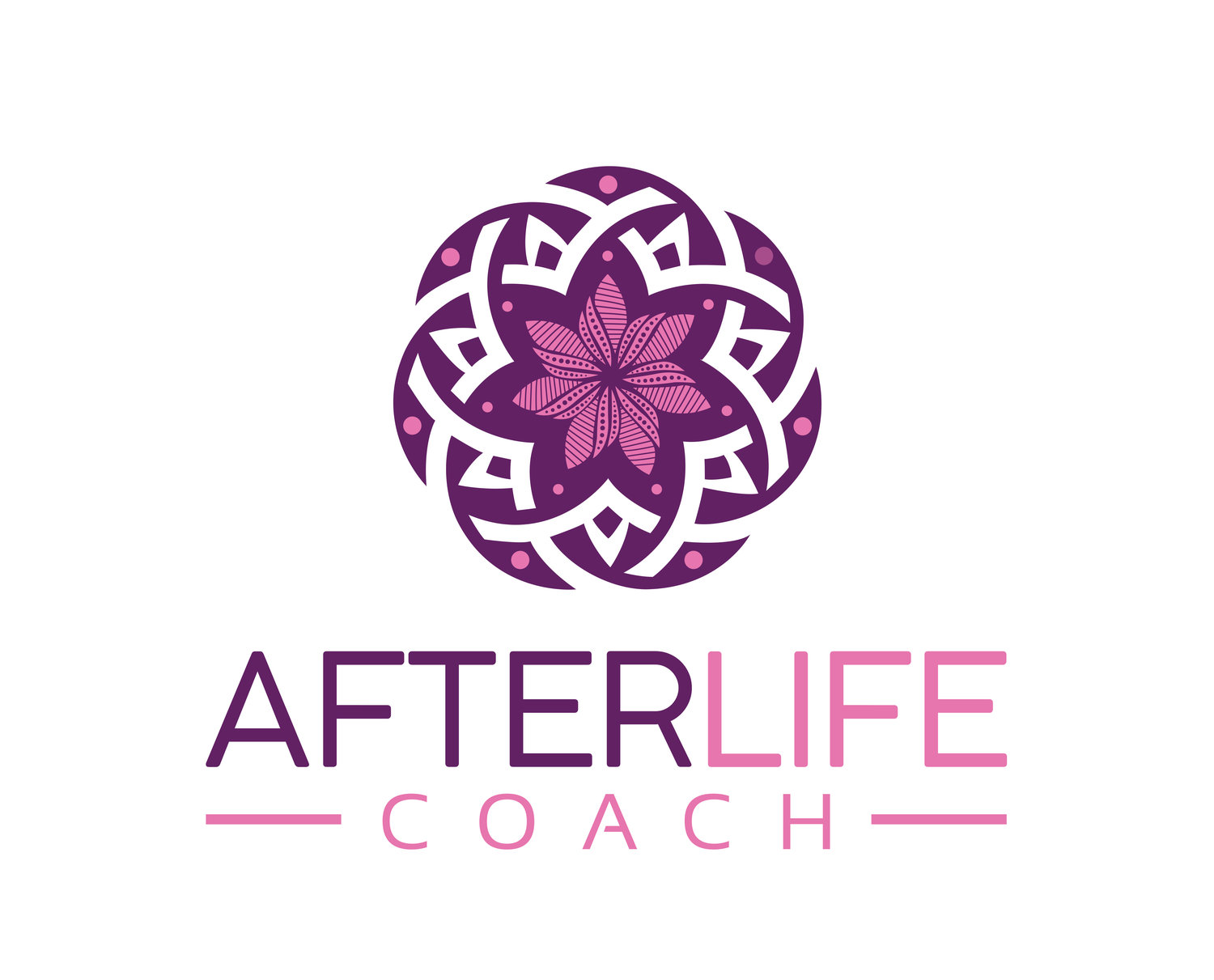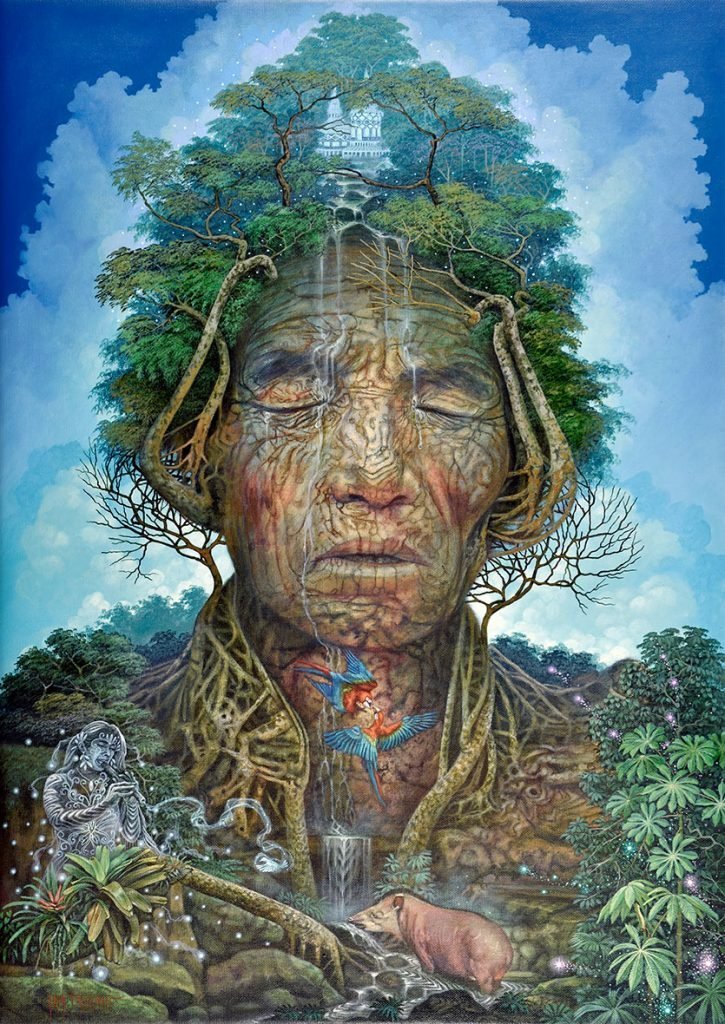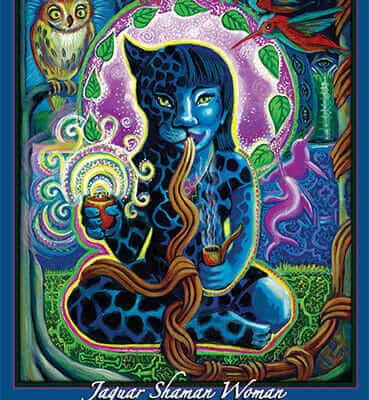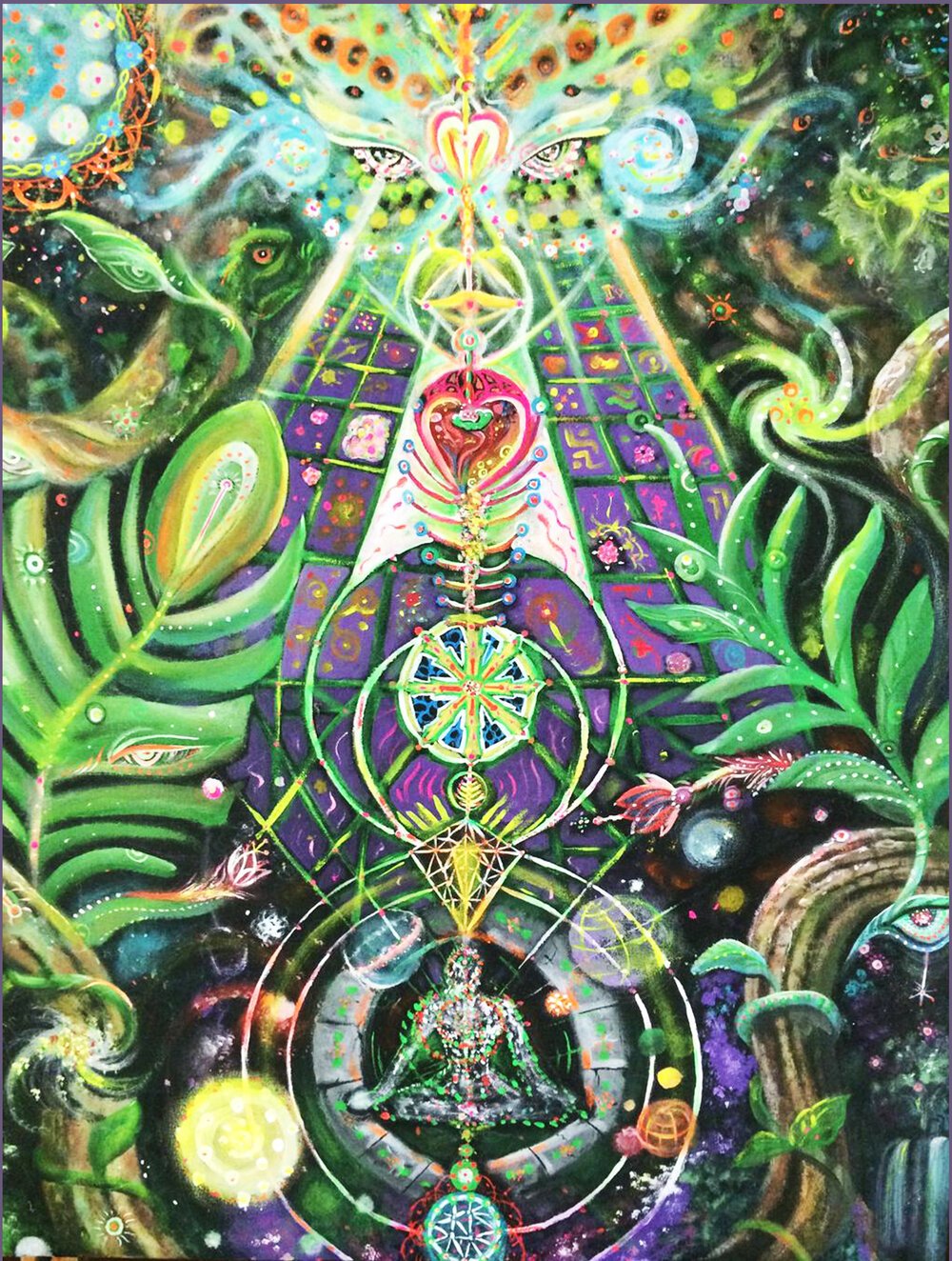Why the Shaman is the Most Important Part of an Ayahuasca Ceremony
/There’s a hell of a lot that goes into putting together a successful Ayahuasca ceremony. The set and setting, the tribe assembled and their preparedness, the host + organizer + support team, the food + water, the various supplies and clean toilets, the altar and sacred items, the musical instruments and other plant friends, candles and votives and cleaning supplies – the list goes on. And on! But aside from the brew herself, by far the most important element to any Ayahuasca ceremony is the facilitator / practitioner / shaman.
And I’m not just saying this because I’m one myself.
There’s a ton of Ayahuasca centers and circles popping up everywhere these days, and many of them are led by people who have no clue about the intricacies and challenges of this work. Naivete does not create safety, nor does good intentions. Furthermore, massive retreat centers like Rythmia have staff that have only come through their ceremonies and have zero formal Ayahuasca training, and I know from working there that upper management does not feel it’s imperative that folks have traditional training or really any experience whatsoever, and it’s very, very concerning.
Let’s explore why the shaman / facilitator is quite literally the most crucial element in the complexity that is an Ayahuasca ceremony. Take this in, and I promise you’ll never want to sit in a ceremony without a well-trained guide again.
A Shaman Must be Connected to Their Brew
It goes without saying that the tea herself is paramount to the journey, but this is likely more complicated than you might assume.
First and foremost, the shaman must know exactly what’s in the tea they are serving. You might be shocked to learn that many people pouring medicine can’t actually guarantee the ingredients in their brew. When I worked at Rythmia, we went through up to 30 liters of medicine a week, sourced from multiple people, and we never actually knew exactly what we were pouring. We received batches of medicine that had extremely dark energies; so much so I was suspicious on the regular that there were added plants in the brew. A lot of brewmasters add things like Toé, which is a dark and potent nightshade psychotropic that adds an intensely strong vibration to the medicine. (She’s a damn beautiful plant spirit, by the way, but must be worked with in a super safe, strong, intentional container – it’s beyond unethical to add her in and not have people aware and prepared.)
This isn’t just important for the obvious reasons, but for energetic ones too. If, as a facilitator, I don’t have an intimate relationship with all the plants in the brew, I don’t have a clue how to work with them.
Think of this as a dance troupe. If you’ve been dancing for years with a crew and someone new bounces in, it’s going to take a long time to learn their nuances and vibes. The same is true for the plants in a ceremonial tea. We must know how to work with their energies or the ceremony can go haywire.
Additionally, every single touch point in the creation of something like an Ayahuasca brew matters greatly. The way the plants are grown and harvested matters, as does the energy and reverence of the person who grows or collects her. Ayahuasca vines that grow wild in the Amazon, as an example, have a much different vibration than the ones from Hawaii—the latter is typically softer. It’s jungle queen vs island queen – still potent medicine but very different vibes! And if the person who collects her has no connection to her, and they don’t harvest her with love and carefulness, you can feel that in the brew.
The same is true, of course, for the brewmaster. Making an Ayahuasca brew is not about a recipe, it’s about communing with the spirit of the plants, and imbibing prayers and powerful intentions. This is why it’s never a good idea to buy the plants online and cook something up in your kitchen. If you don’t first have deep relationships with their spirits, and training in how to marry the two energies and fortify it with strong prayers, it’s just not the same experience, and can actually go horribly wrong. Plants like Ayahuasca and Chacruna don’t take kindly to folks who are arrogant enough to assume they can read something on the internet and be a pro at working with them.
So even if the shaman pouring the medicine in ceremony was not the brewmaster themselves (which is most common, by the way), they need to know who made the brew, where the plants were grown, the prayers that were sung to her during the cooking process, and the energy of the chef. Every single energy exchange matters greatly.
The Shaman Sets the Tone in Ceremony
Here’s the thing about working with the amazing entheogens; they crack us wide open. We get wildly vulnerable in these experiences. We might purge our cute little guts out, or cry from the depths of our beings. Or both, and then some. That sensitivity is absolutely precious, and it requires immense protection and discernment.
The person that serves you Plant Medicine in any ceremony is far more than just a bartender. They are the tone setter. They are the one you will call out to in distress if the darkness takes over. They hold the energy you will be swimming in throughout your altered experience. They literally have your physical and spiritual safety in their hands.
This means it’s absolutely crucial that you choose someone who is:
a) Deeply connected to the plant(s) (or animal spirits) they are serving you. Please do not trust your wellbeing to an Ayahuasca facilitator, or any other Plant Medicine, who has not gone to hell and back with the being they are in partnership with. We must know the incredible power of the plants we carry, or we are outright dangerous.
b) Highly experienced with the medicine they are in service to. Some entheogens, like Ayahuasca, Huachuma, and Iboga, have ancient traditions that the practitioner should have a foundation in. If we do not honor all those who came before us, we are not in integrity with the work we are doing.
c) Safe, at least in how you personally define it. No shaman is completely safe to everyone, in all scenarios, so find the person or people that make you feel seen, protected, and that you feel you can trust.
This is all the more integral in Ayahuasca ceremonies, as you’ll also be sitting in the energy/vibration of the shaman as they sing the Icaros and work the energies of the space. If you’re sitting with someone who hasn’t done deep shadow work on themselves, you might be slaughtered with self-loathing energies, rage, confusion, or any other shadowy vibrations. That just doesn’t make for a fun night with the medicines.
Energy Travels from the Top Down
There are lot of less obvious reasons the facilitator you are sitting with matters greatly to your ceremony outcome, too. The shaman is the spiritual leader of the ceremony space, and because medicines make us so cracked open and empathic, their vibration sets the tone for the entire experience. This may be obvious or it may be subtle, but it is always, always true.
Let’s say a particular facilitator has not done the work to be in a positive relationship with their ego, and they secretly harbor intense insecurity. That will come out in the tribe they are a part of. Like attracts like, and we are contagious with each other, so an insecure or controlling shamanic practitioner will likely have people around them that act the same. And this will be palpable in ceremony to all of us that are suddenly so very sensitive.
I once had to share ceremony space with a co-facilitator that had intensely shadowy sexual tendencies. He was full of shame about his sexuality, and so when he led the ceremony space, similar things manifested. I witnessed masturbation, sexual advances, and nudity—something I’ve never seen before or since. It was a response to his refusal to acknowledged and work with this energy inside of himself. We knew these sexual outbursts were a result of his shadowy energy because the same group of people would sit with him on night one and act out in these shadowy ways, and then sit with myself or another shamanic guide the next night, and nothing of the sort would occur. This is potent evidence about how much the person sitting behind the altar really does set the tone of the space.
Likewise, I myself went through a really dark time in my apprenticeship that triggered a relapse in bulimia. Because I did not have the courage or self-love to be transparent at that time, it showed up in the space I was assisting with. Women in particular expressed a higher degree of self-loathing. My personal ceremonies were incredibly heavy and dark. I own the karma of those decisions, and now I know that nothing is hidden in this immensely sensitive and illuminating spaces. As a facilitator, I know have full responsibility that what is inside me will be the energies that fill the space, so I’m now committed to ensuring that’s as loving as possible. If I’m in a human contraction / space of darkness, I have no business pouring medicine. Neither does anyone else.
If the space-holders who are the vessels for the energy in a ceremony are in breakdown, you better believe the space will reflect it. We cannot hide from Ayahuasca, Mushrooms, Iboga, or any of the plants. They illuminate everything inside of us.
The moral of the story, then, is that as participants in Sacred Plant ceremonies, we are employed to wholly trust our instincts. The plants don’t protect us, we must do that ourselves. And if we give our power away to people in authority, ignoring what we feel beneath the surface, why on earth are we drinking medicines that awaken us to truths anyway?
As facilitators, we are also held to an insanely high degree of integrity. If we want to co-create healing and magic, we have to sincerely hold that energy inside of us. This cannot be a mental construct; if our current reality is one of pain and darkness, we can’t hide that in the spaces we share our medicine in. Therefore, we must have the courage and honesty to step away from the altar when we’re going through our personal challenges. Anything less is reckless and endangers the people we are blessed to serve.
Go forth and have beautifully healing Plant Medicine journeys :)



